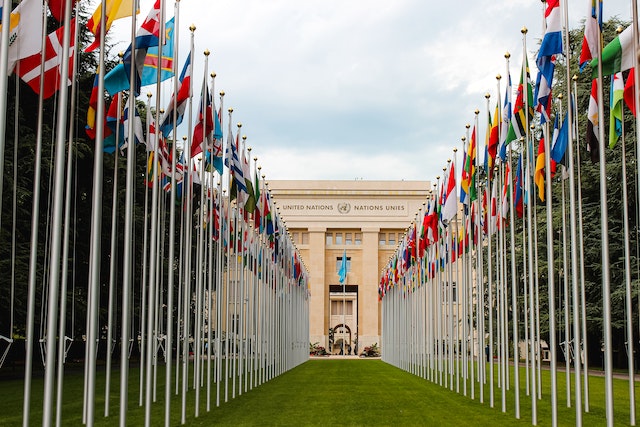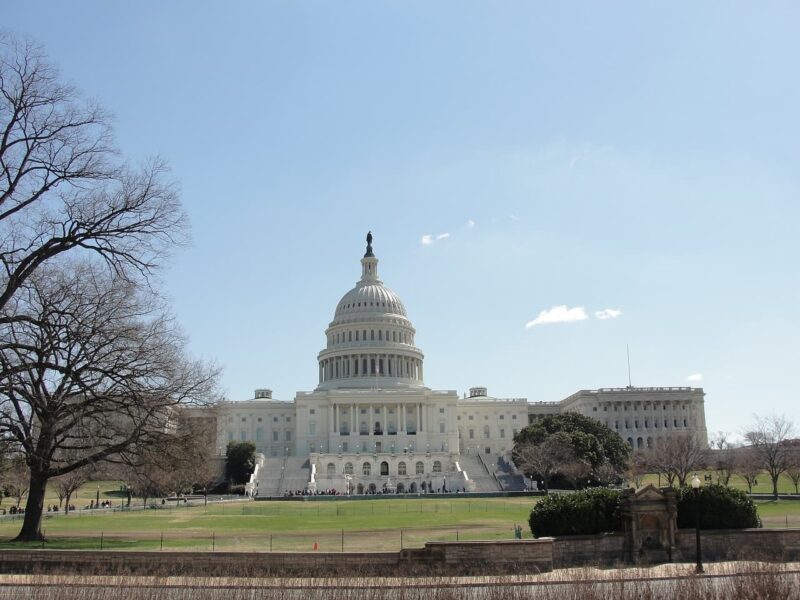Breaking into the world of foreign policy can be as challenging as it is rewarding. This multifaceted domain, which encompasses international relations, global politics, economics, and more, offers an array of opportunities to those with a keen interest in understanding and contributing to global affairs.
Yet, many are unsure about the path that leads to a fulfilling career in this field. Whether you’re an aspiring diplomat, policy analyst, or international affairs consultant, this comprehensive guide will illuminate the critical steps to securing a job in the exciting and ever-evolving foreign policy world.
It will help you understand the necessary educational foundation, required skills, the value of relevant experience, the power of networking, and the importance of continual learning in shaping a successful career in foreign policy.
Building a Strong Foundation: Education and Skills
The foreign policy world values intellect and knowledge, and having a strong educational background is often the first stepping stone. A degree in International Relations/Law, Political Science, or Public Administration is generally favored.
However, the sector also appreciates multidisciplinary knowledge, with degrees in Economics, Law, Environmental Science, and even Computer Science being advantageous in specific niches of foreign policy.
Apart from a relevant education, you should focus on developing certain skills:
- Communication Skills: The ability to express your thoughts and ideas effectively, both orally and in writing, is crucial in the world of foreign policy.
- Analytical Skills: Foreign policy professionals often need to analyze complex political situations, economic data, and social trends.
- Foreign Language Skills: Proficiency in one or more foreign languages can significantly enhance your employability, especially in roles that require liaison with non-English speaking countries.
- Cultural Sensitivity: As you’ll be working with diverse cultures, understanding cultural nuances is essential.
Gaining Relevant Experience
Securing a job in the foreign policy sector often necessitates more than academic credentials; hands-on experience plays an equally significant role. It provides insights into the practical aspects of the industry, showcases your commitment to the field, and can give you a competitive edge in the job market.
Here are some effective ways to gain relevant experience:
Internships and Fellowships
Internships and fellowships offer a chance to learn from experienced professionals and contribute to real-world projects in foreign policy. Such opportunities exist in a wide array of organizations, including government departments, international organizations, embassies, and think tanks.
In addition to gaining industry knowledge, internships allow you to demonstrate your skills, establish professional connections, and potentially secure full-time employment in the future.
Volunteering
As career experts from ResumeWritingLab, a company that helps clients with writing and editing their professional documents like resumes and cover letters, told us: “Volunteering for NGOs or other organizations focused on international relations is another valuable way to gain experience. This might involve working on international development projects, supporting humanitarian causes, or advocating for policy change. “
The diverse experience and insights gained through volunteering often reflect positively on your resume and can be a conversation point in job interviews.
Study Abroad Programs
Participating in a study abroad program can provide first-hand exposure to international cultures, languages, and political systems. This can prove particularly useful if you’re interested in specializing in a particular region or country’s foreign policy.
Joining Student Organizations
Involvement in student organizations or clubs focused on international affairs or related topics can also enrich your understanding of foreign policy. These groups often host events, discussions, or simulations related to international relations, allowing members to engage in foreign policy issues practically, and hands-only.
Remember, every experience, no matter how small it may seem, adds to your understanding of the world and can bring you closer to your goal of breaking into the foreign policy sector. So be proactive, seize every opportunity, and start building your experience today.
Networking and Professional Development
Networking is paramount in the foreign policy sector. Attending conferences, seminars, and workshops can connect you with professionals in the field. These interactions can lead to mentorships, internships, or job opportunities. Consider joining professional associations related to foreign policy to further build your network and stay informed about industry trends.
Furthermore, don’t underestimate the power of digital networking. LinkedIn, for instance, can be a powerful tool for connecting with professionals in the field and learning about job openings.

Continual Learning and Adaptation
The world of foreign policy is dynamic, with changes often spurred by shifting geopolitical landscapes, evolving global norms, and emergent technology trends. To thrive in this sector, one needs to commit to continual learning and adaptation.
Staying Informed About Current Affairs
A foreign policy professional must be aware of both current events and underlying geopolitical trends. Reliable news sources, both national and international, are indispensable for this purpose.
Additionally, consider subscribing to academic journals and magazines that focus on international relations or foreign policy. These publications often provide in-depth analyses of ongoing issues and can help develop a nuanced understanding of global affairs.
Continuing Professional Development
Continuing professional development (CPD) is critical to maintaining and enhancing your foreign policy competence. This can involve taking additional courses, attending workshops or seminars, or obtaining higher certifications or degrees.
Many universities and institutions offer courses on specific aspects of foreign policy, such as peace and conflict studies, international law, or diplomatic studies. Online platforms also offer a wealth of resources for CPD.
Adapting to Technological Changes
Technology plays a growing role in foreign policy. From the use of digital diplomacy to the implications of cyber security, understanding the interplay of technology and foreign policy is becoming increasingly important.
Therefore, being comfortable with technology and staying updated on relevant technological trends is crucial.
Conclusion
The pathway to a fulfilling career in the foreign-policy world can be as dynamic and varied as the field itself. The journey demands a robust academic foundation, requisite skills, a rich array of practical experiences, and a strong professional network.
Yet, the essential ingredient to thriving in this sector is a commitment to lifelong learning and a readiness to adapt to the ever-changing global landscape.
The rewards of a career in foreign policy are abundant: the opportunity to grapple with some of the most pressing global issues, the possibility to influence international relations, and the potential to contribute to global peace and development.
So, if your ambition is to be part of this exciting world, equip yourself with the right education, gain relevant experience, expand your network, and stay committed to continuous learning.
With these pillars in place, you’re well on your way to making a significant impact in the foreign-policy arena. Remember, your passion and dedication to this field can open doors to a vibrant and influential career at the forefront of global affairs!



